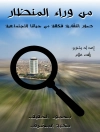In ‘Observations on the Mussulmauns of India, ‘ Mrs. Meer Hasan Ali presents an insightful exploration of the socio-cultural dynamics of Indian Muslims in the early 19th century. Written with a vivid narrative style that interweaves personal anecdotes with meticulous observation, the text serves as both a travelogue and a sociological study. Ali’s keen sense of detail illuminates the customs, beliefs, and daily lives of the Mussulmauns, providing a lens through which readers can appreciate the intricate fabric of Indian Muslim society against the backdrop of colonial influences and changing times. Mrs. Meer Hasan Ali, a notable figure of her time, was acutely aware of the socio-political landscape of India, shaped by her own experiences as a Muslim woman in a patriarchal society. Her background and education allowed her to traverse cultural boundaries, embarking on journeys that would ultimately inform her perspectives and enrich her writings. Through her observations, Ali offers a rare female voice that challenges the dominant narratives of her era, contributing significantly to the discourse on imperialism, identity, and gender roles. This seminal work is highly recommended for scholars, students, and anyone interested in the intersections of gender, culture, and colonialism. Mrs. Meer Hasan Ali’s passionate narrative not only encapsulates the lived experiences of her subjects but also invites readers to reflect on the broader implications of identity and belonging in a rapidly evolving world.
Об авторе
Mrs. Meer Hasan Ali, an Englishwoman who acutely documented her experiences in early 19th century India, is primarily known for her seminal work ‘Observations on the Mussulmauns of India’. This text is an ethnographic marvel of its time, laying bare the intricacies of Muslim culture, traditions, and social norms from a distinctly European perspective. Her detailed narrative provides a valuable lens into the day-to-day lives of Indian Muslims as seen through her interactions while residing in India. By immersing herself in the local milieu, she offered a nuanced understanding that challenged prevalent Orientalist views and exceeded the superficial reportage of many contemporaries. Though little is known about her life outside her literary contribution, Mrs. Ali’s writing is treated as a foundational source on colonial Indian sociology and history. Her penetrative descriptions of religious ceremonies, customs, and the status of women offer an advanced, yet complex picture of society for readers and scholars alike. In an era where female authorship was often marginalized, Mrs. Ali’s work stands out for its empathetic and meticulous narrative, establishing her as an essential voice in the literary and cultural study of colonial India.












